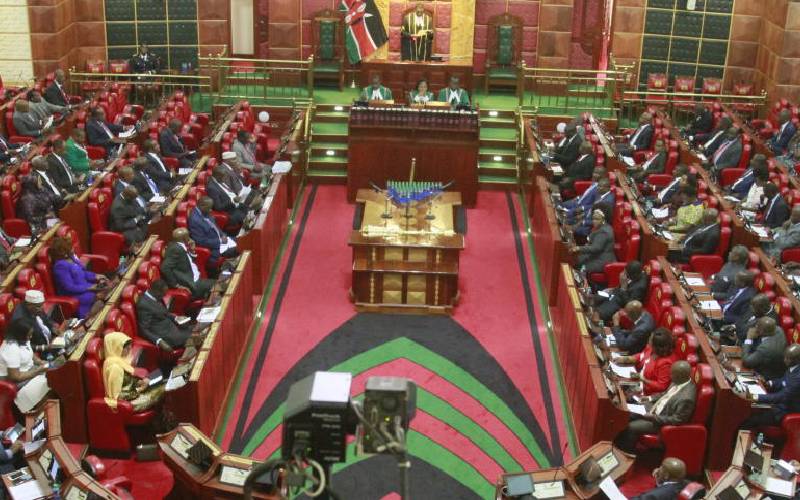
Days of government officials hiring their tribesmen and village mates into public institutions at the expense of more qualified candidates could be numbered.
That is if a proposed law in parliament requiring national and county government organs to provide a list detailing the county of birth and residence of employees sails through the house.
The list to root out tribal and regional imbalances will also contain the age and gender of the employees, further slamming brakes on tendencies that discriminate against marginalised groups.
“The purpose of this bill is to amend the Public Service (Services and Principles) Act to require all State organs in the national and county governments and state corporations to submit annual reports on details of the human resource in constitutional Commissions, independent offices and County Public Service Boards and County Assembly Service Board,” states the Public Service (Values and Principles (Amendment) bill, 2019.
“The reports should contain details outlining the total number of employees and highlighting their gender, age, county of birth and county of residence,” states the proposal sponsored by Mwatate MP, Andrew Mwadime.
Although the current law compels the tabling of a report ‘on the status of the promotion of the values and principles of public service,’ it is silent on the finer contents of such a document, making it an empty exercise that allows offending institutions get away with discrimination.
A 2016 report on ethnic comparison on constitutional commissions revealed that most jobs were held by people from one ethic community.
The report by the National Cohesion and Integration Commission (NCIC) also made reference to ‘forgotten’ ethnic communities, which it identified as Dasenach, Galla, Konso, What, Galjeel, Isaak, Leysan and Gosha. These communities were not represented in the commissions.
Another report on the composition of county public service concluded that employment in the service is not only inequitable but skewed towards the dominant groups in the county.
It determined that ‘if equitable distribution of public employment is enhanced, feelings of exclusion, marginalization and tension could be averted leading to a less tense society.”
Section 16 of the Act which the MP seeks to amend requires state organs to detail progress made in achieving values and principles of public service.
It also requires institutions to identify challenges and make recommendations necessary in the realization of these principles.
The lawmaker however wants this changed to include specific details that will help parliament identify state organs breaking the law and take necessary action.
“By receiving annual reports, legislatures can discharge the oversight role bestowed upon them as they will be able to analyze and query non-compliant state organs,” the bill states.
“This will facilitate the public service values and principles that require the public service to reflect Kenya’s diverse communities and afford adequate and equal opportunities for appointment of women and men, members of all ethnic groups and persons with disabilities pursuant to Article 232 of the Constitution,” it adds.
 The Standard Group Plc is a multi-media organization with investments in media
platforms spanning newspaper print operations, television, radio broadcasting,
digital and online services. The Standard Group is recognized as a leading
multi-media house in Kenya with a key influence in matters of national and
international interest.
The Standard Group Plc is a multi-media organization with investments in media
platforms spanning newspaper print operations, television, radio broadcasting,
digital and online services. The Standard Group is recognized as a leading
multi-media house in Kenya with a key influence in matters of national and
international interest.
 The Standard Group Plc is a multi-media organization with investments in media
platforms spanning newspaper print operations, television, radio broadcasting,
digital and online services. The Standard Group is recognized as a leading
multi-media house in Kenya with a key influence in matters of national and
international interest.
The Standard Group Plc is a multi-media organization with investments in media
platforms spanning newspaper print operations, television, radio broadcasting,
digital and online services. The Standard Group is recognized as a leading
multi-media house in Kenya with a key influence in matters of national and
international interest.










